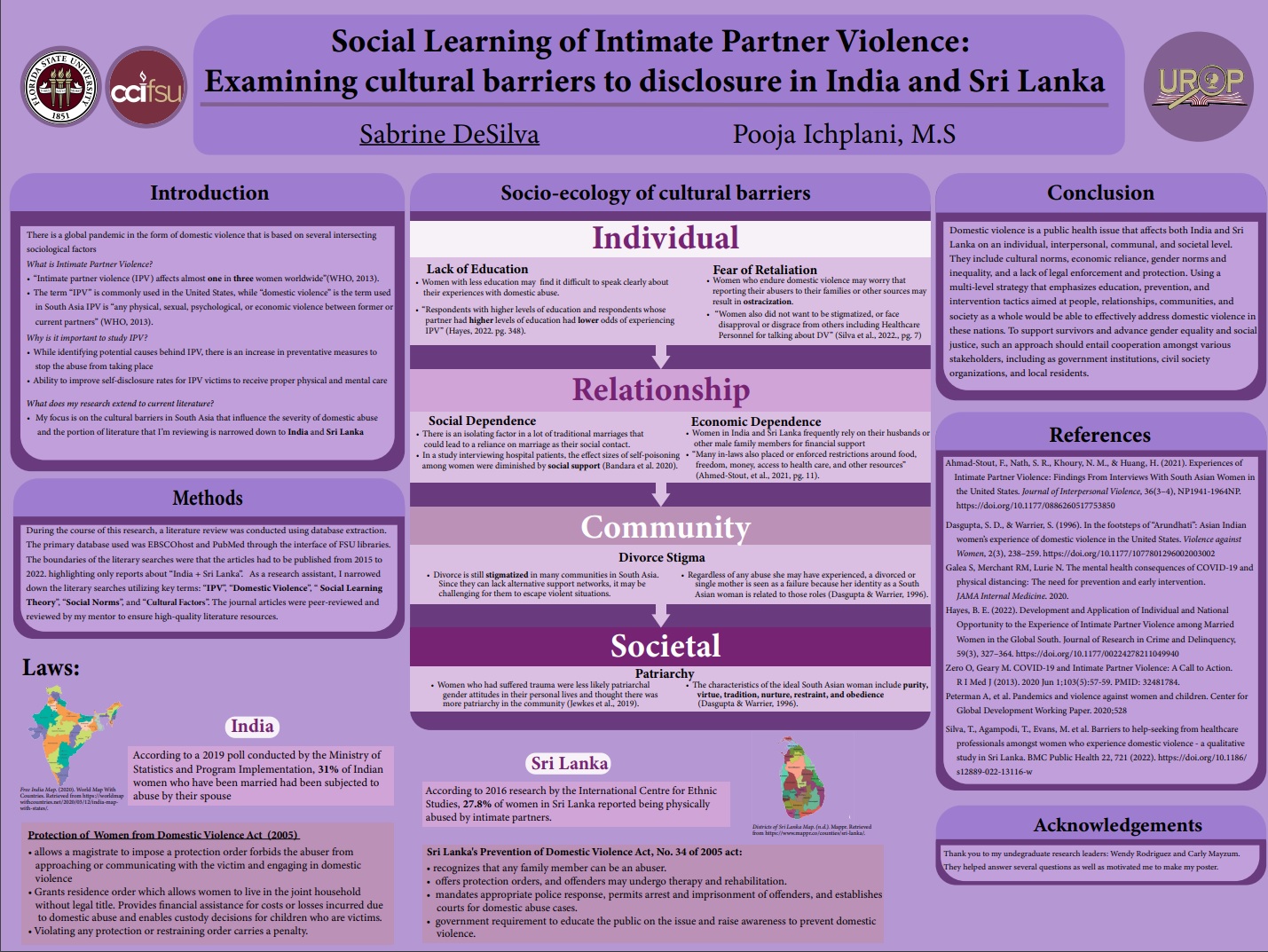Research Symposium
23rd annual Undergraduate Research Symposium, April 6, 2023
Sabrine DeSilva Poster Session 2: 1:30 pm - 2:30 pm/ Poster #337

BIO
I'm an undergraduate student double majoring in Psychology and Criminology. My research subject falls into these two categories as it is centered around domestic abuse of women in South Asia. During the 2022-2023 UROP year, I've been working with my research mentor, Pooja Ichplani, M.S. There have been seven months of researching different qualitative and quantitative journal articles and organizing the results. My past have future plans of becoming a forensic psychologist in Florida case management.
Social Learning of Intimate Partner Violence: Examining cultural barriers to disclosure in India and Sri Lanka.
Authors: Sabrine DeSilva, Pooja IchplaniStudent Major: Psychology, Criminology
Mentor: Pooja Ichplani
Mentor's Department: School of Communications Mentor's College: College of Communication and Information Co-Presenters:
Abstract
According to the World Health Organization (WHO), 1 in 3 women around the world faces intimate partner violence (IPV), a public health problem. There is a specificity to the types of interpersonal violence that take place, the prevalence of IPV is “strikingly high in South Asia, particularly with regard to spousal violence, early marriages, honor-killing (HK), forced sex, and sex trafficking” (WHO, 2005). This paper highlights cases of India and Sri Lanka to emphasize the community values that perpetuate the cycle of abuse in households. The purpose of this poster is to raise awareness about the social conditioning of victims as well as perpetrators of IPV in these countries using Bandura’s social learning theory. Drawing from peer-reviewed journal papers, quantitative and qualitative data focusing on the issues faced by women who have suffered IPV assault, and opinions from subject-matter experts, it is argued that cultural norms and beliefs around gender roles and expectations, as well as limited communication between partners and external support networks, can exacerbate the severity of IPV. These findings also suggest the need for targeted interventions that consider the unique cultural contexts of South Asia and work to address the specific barriers women face in seeking help and social support. To sum up, prevention and mitigation efforts to ameliorate the impact of IPV on women in Sri Lanka and India must be grounded in a better understanding of sociocultural factors.
Keywords: Domestic abuse, Intimate Partner Violence, College of Communications

